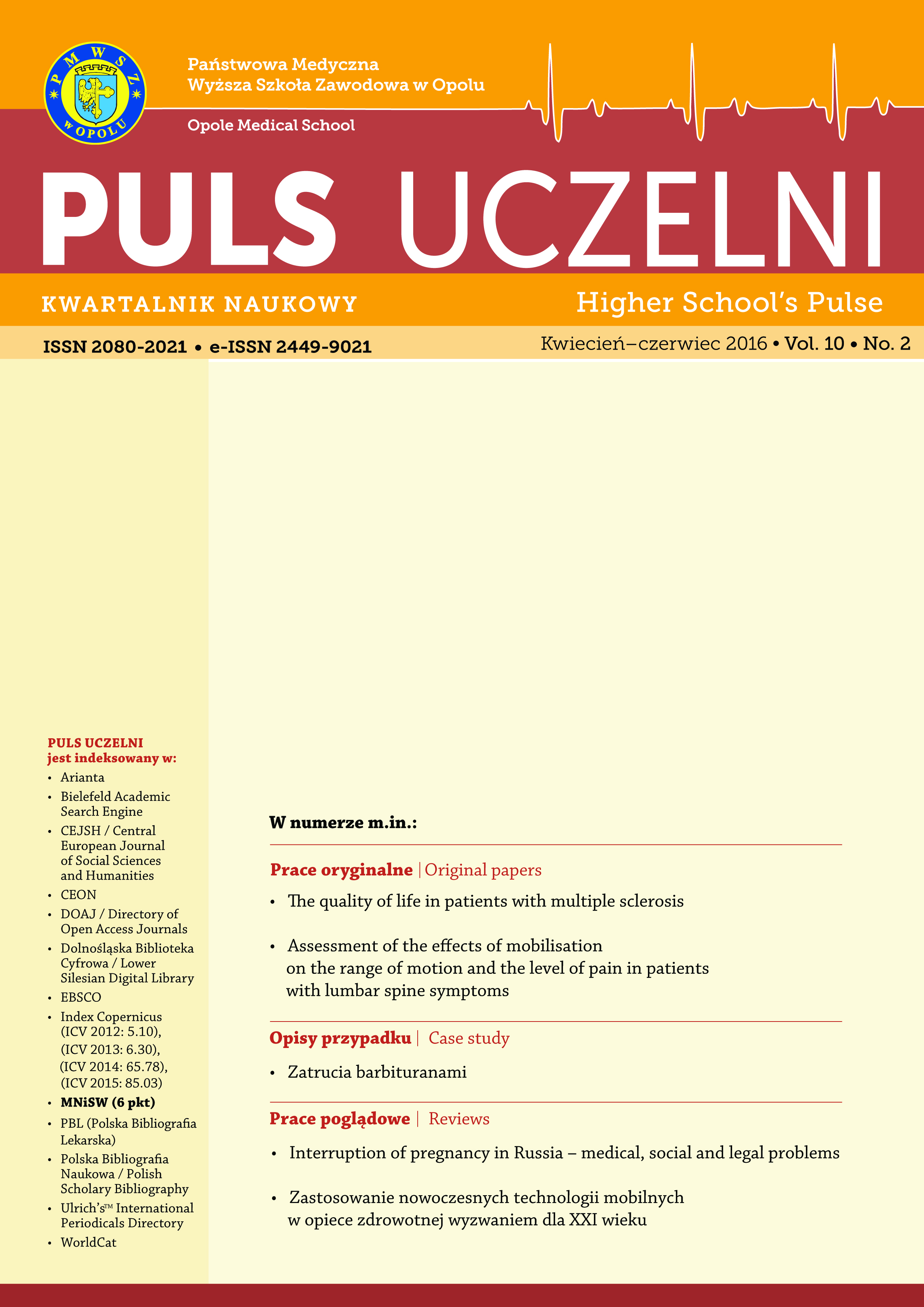Interruption of pregnancy in Russia – medical, social and legal problems
Interruption of pregnancy in Russia – medical, social and legal problems
Author(s): Liudmila G. Klimatckaia, Tatyana V. DolgolenkoSubject(s): Social Sciences, Sociology, Health and medicine and law
Published by: Państwowa Medyczna Wyższa Szkoła Zawodowa w Opolu
Keywords: health and medicine and law; Russia; gender studies;welfare systems
Summary/Abstract: The article deals with the problem of abortion. The authors consider the related medical, social and legal responsibility in Russia. Despite a decrease in the number of performed abortions, as it is noted in the “Concept of the state family policy in Russia till 2025”, interruption of pregnancy is one of the factors which influence the birth rate and reproductive health of women in a negative way. Analyses of the main Russian legal acts show directions of the state policy aiming at increasing the birth rate and strengthening the institution of family.Russia is one of the countries, where abortion is legally performed not only upon medical and social indications, but also at the request from a pregnant woman, irrespective of indications. Abortion is carried out at the following pregnancy lengths: at the request of the woman – until the 12th week, due to social indications – until the 22nd week, and in the presence of medical indications and consent of the woman – irrespective of the length of pregnancy. Illegal carrying out artificial interruption of pregnancy entails administrative or criminal liability. The term “abortion” functions in the medical and legal understanding. From the legal point of view “abortion” is equal to “artificial interruption of pregnancy” and is characterized by complete removal of the fetus from uterus with the use of medications or by means of a surgical intervention. There is a necessity of emergence of administrative responsibility for violation of requirements of the legislation in the sphere of health protection when carrying out artificial interruption of pregnancy. However, to increase the birth rate and strengthen the Russian family, it is necessary to consider extensive legislative experience of the pre-revolutionary and Soviet periods. The authors support the view that medical, criminal and legal means should be used to protect human life from the moment of conception and that the idea of protecting human life should be instilled more firmly in Russian society’s consciousness.
Journal: Medical Science Pulse
- Issue Year: 10/2016
- Issue No: 2
- Page Range: 32-36
- Page Count: 4
- Language: English

